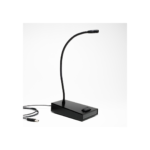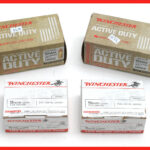Peripheral artery disease (PAD) is a condition that affects blood flow to the limbs, causing wounds to heal slower. Collagen plays a crucial role in wound healing, but PAD patients may have collagen deficiency. Collagen supplements may help speed up the healing process, but other methods to boost collagen production should also be considered. Preventing wounds is crucial for PAD patients, and seeking medical help is necessary to manage the condition. Collagen is a vital component in wound healing for PAD patients, and understanding its role can help improve the healing process and quality of life for those affected by PAD.
Understanding PAD
Peripheral artery disease (PAD) is a condition where the arteries that supply blood to the limbs become narrowed, reducing blood flow. This causes symptoms such as leg pain, numbness, and slow wound healing. Risk factors for PAD include smoking, high blood pressure, high cholesterol, and diabetes. Treatment options include lifestyle changes, such as quitting smoking and exercising, as well as medication and surgical procedures. PAD can have a significant impact on a person’s quality of life, and early detection and management are essential to prevent complications and improve outcomes.
PAD and Wound Healing
Peripheral artery disease (PAD) can lead to slow wound healing in the legs and feet. Reduced blood flow to the affected area can impair the delivery of nutrients and oxygen, which are essential for the healing process. Wounds may also become infected more easily due to compromised immune function in the affected area. Treating the underlying PAD condition is crucial for wound healing, and measures such as avoiding smoking, controlling blood pressure and cholesterol, and exercising regularly can help improve blood flow and promote healing. Seeking medical help for wound care is also necessary to prevent complications.
Role of Collagen in Wound Healing
Collagen is a vital component in the wound-healing process. It provides a structural framework for cells to migrate, proliferate, and differentiate in the injured tissue. Collagen also plays a crucial role in the formation of blood vessels and extracellular matrix, which provide support and nutrition to the healing tissue. Collagen synthesis can be impaired in certain conditions, such as peripheral artery disease, leading to slower wound healing. Therefore, optimizing collagen production through supplements, diet, and lifestyle changes can help improve wound healing outcomes in people with PAD and other conditions that affect collagen synthesis.
Collagen Deficiency in PAD
Peripheral artery disease (PAD) can lead to collagen deficiency in the affected limbs, impairing the healing process. Collagen is synthesized by cells in the body, and PAD can reduce the amount of collagen produced due to impaired blood flow and nutrient delivery. Collagen deficiency can further delay wound healing and increase the risk of complications such as infection. Collagen supplements may help alleviate collagen deficiency in PAD patients and promote faster wound healing. However, it is important to consult a healthcare provider before starting any supplements to ensure they are safe and appropriate for individual needs.
Collagen Supplements for PAD Wound Healing
Collagen supplements may help improve wound healing outcomes in people with peripheral artery disease (PAD). They can provide additional collagen to the body, which may help compensate for collagen deficiency in the affected limbs. Studies have shown that collagen supplements can accelerate wound healing in animal models and human studies. However, further research is needed to determine the optimal dosage, timing, and type of collagen supplement for PAD patients. It is important to consult a healthcare provider before starting any supplements to ensure they are safe and appropriate for individual needs.
Boosting Collagen Production in PAD
There are several ways to boost collagen production in people with peripheral artery disease (PAD) to improve wound healing outcomes. These include eating a healthy diet rich in vitamin C, which is essential for collagen synthesis, and incorporating foods that contain amino acids such as proline and glycine. Exercise can also stimulate collagen production, and quitting smoking can reduce collagen breakdown. Additionally, certain skincare products containing collagen peptides may help promote collagen synthesis in the skin. Consulting a healthcare provider is important to determine the best approach to boost collagen production based on individual needs and health status.
Preventing Wounds in PAD
Preventing wounds is crucial for people with peripheral artery disease (PAD). Lifestyle changes such as quitting smoking, controlling blood pressure and cholesterol, and exercising regularly can help improve blood flow and reduce the risk of developing wounds. Proper foot care is essential for preventing foot ulcers, and wearing comfortable shoes that fit well can help reduce the risk of developing blisters or other foot injuries. Avoiding walking barefoot and using protective gear when participating in activities that could cause injury is also important. Seeking medical help for wound care is necessary to prevent complications and promote healing.
Ephuroalabs Collagen Gummies
Ephuroalabs Collagen Gummies is a dietary supplement that provides an easy and convenient way to increase collagen intake. They are formulated with hydrolyzed collagen, which is broken down into smaller peptides for easier absorption by the body. Collagen is a key component in the skin, joints, and other connective tissues, and supplementing with collagen may help improve skin health and joint function. The gummies are available in a variety of flavors and are suitable for those with dietary restrictions, as they are free from gluten, soy, and dairy. However, it is important to consult a healthcare provider before starting any supplements.
Conclusion
Collagen plays a crucial role in wound healing for people with peripheral artery disease (PAD). Collagen deficiency in the affected limbs can impair the healing process, and supplementing with collagen may help improve wound healing outcomes. However, other methods to boost collagen production such as a healthy diet and exercise should also be considered. Preventing wounds is crucial for PAD patients, and seeking medical help for wound care is necessary to prevent complications. Understanding the role of collagen in wound healing and managing PAD can help improve the healing process and quality of life for those affected by this condition.






